Meditation and stress—these two words are more connected than you might think. In today’s fast-paced world, meditation offers a simple yet powerful way to manage stress, restore balance, and build inner peace. Whether you're facing daily pressures or long-term anxiety, incorporating even a few minutes of mindfulness each day can make a noticeable difference. Let's explore how meditation helps you stay calm, strong, and centered—one breath at a time.
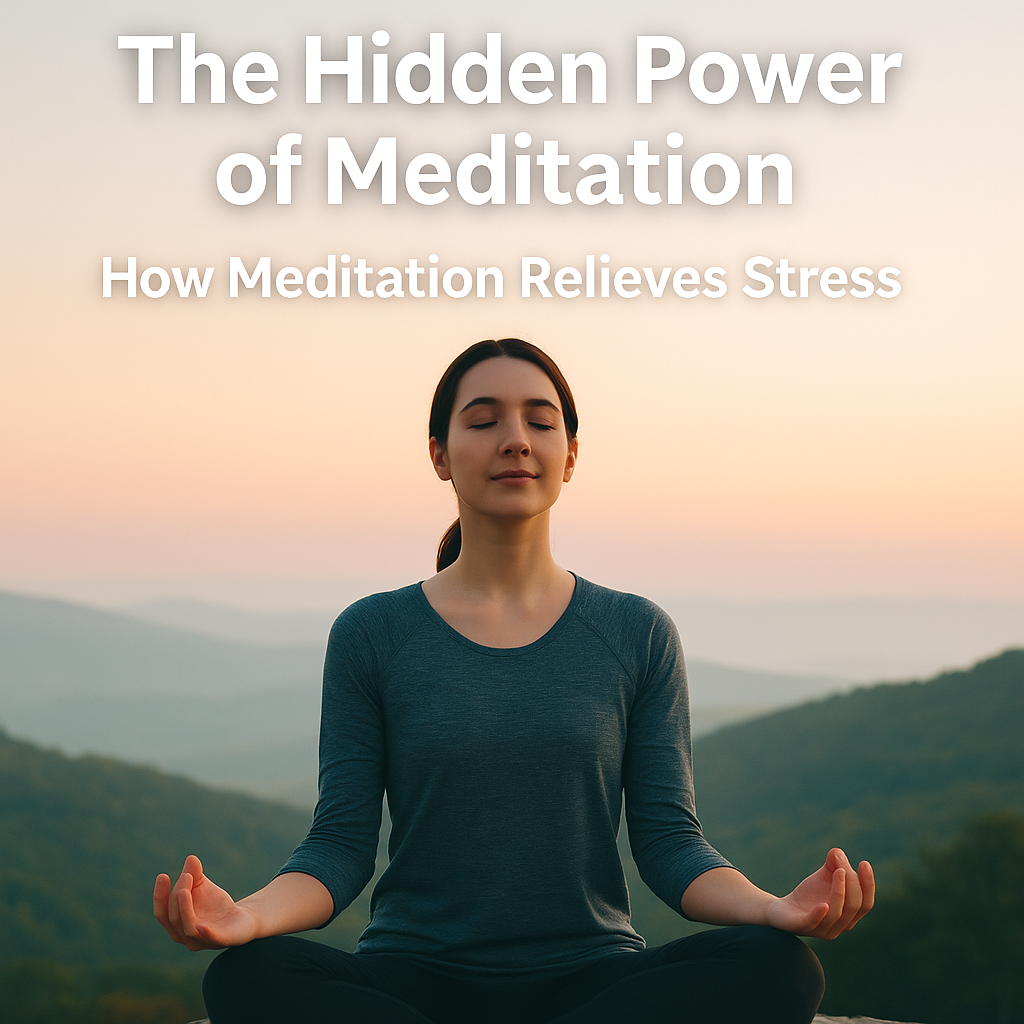

About the Author: Yosuke
Yosuke is the creator of Still Strong Blog, where he writes about meditation, mindset, and building a calm, meaningful life.
Living in Japan, he shares insights as someone with HSP, ASD tendencies, and social anxiety—hoping to inspire others on a journey toward quiet strength.
Follow me on X (formerly Twitter)
🟩 Discover the Hidden Power of Meditation

Science-Backed Reasons Why Meditation Works
Meditation isn't just a spiritual practice—it’s a proven method to improve your mental and physical health. Scientific research has shown that regular meditation can reduce stress, enhance emotional regulation, and improve attention and memory.
One key reason meditation works is that it activates the parasympathetic nervous system, helping your body shift from a state of stress (fight-or-flight) to one of rest and recovery. It also reduces the production of cortisol, the primary stress hormone, leading to a calmer and more balanced state of mind.
For example, a study published in JAMA Internal Medicine found that mindfulness meditation significantly reduced anxiety and depression symptoms in participants after just eight weeks of practice. Another study from Harvard Medical School showed that meditation can increase gray matter density in the brain, especially in areas linked to learning, memory, and emotional control.
These scientific findings prove that meditation isn’t just a trend—it’s a transformative tool backed by data.
What Happens to Your Brain and Body When You Meditate
When you meditate, your body enters a unique state of deep rest and focused awareness. Physiologically, your heart rate slows down, breathing deepens, and muscle tension decreases. This not only helps you relax in the moment but also reduces long-term stress accumulation in your body.
In your brain, something even more remarkable happens. The amygdala, which controls your fear and stress responses, becomes less reactive over time. Meanwhile, the prefrontal cortex—responsible for focus, decision-making, and emotional regulation—becomes more active and well-connected.
Neuroplasticity, your brain’s ability to rewire itself, is enhanced through meditation. This means the more you practice, the more your brain literally changes its structure and function to support calm, clarity, and resilience.
So even just 10 minutes a day can make a difference—not only in how you feel but also in how your brain functions over time.
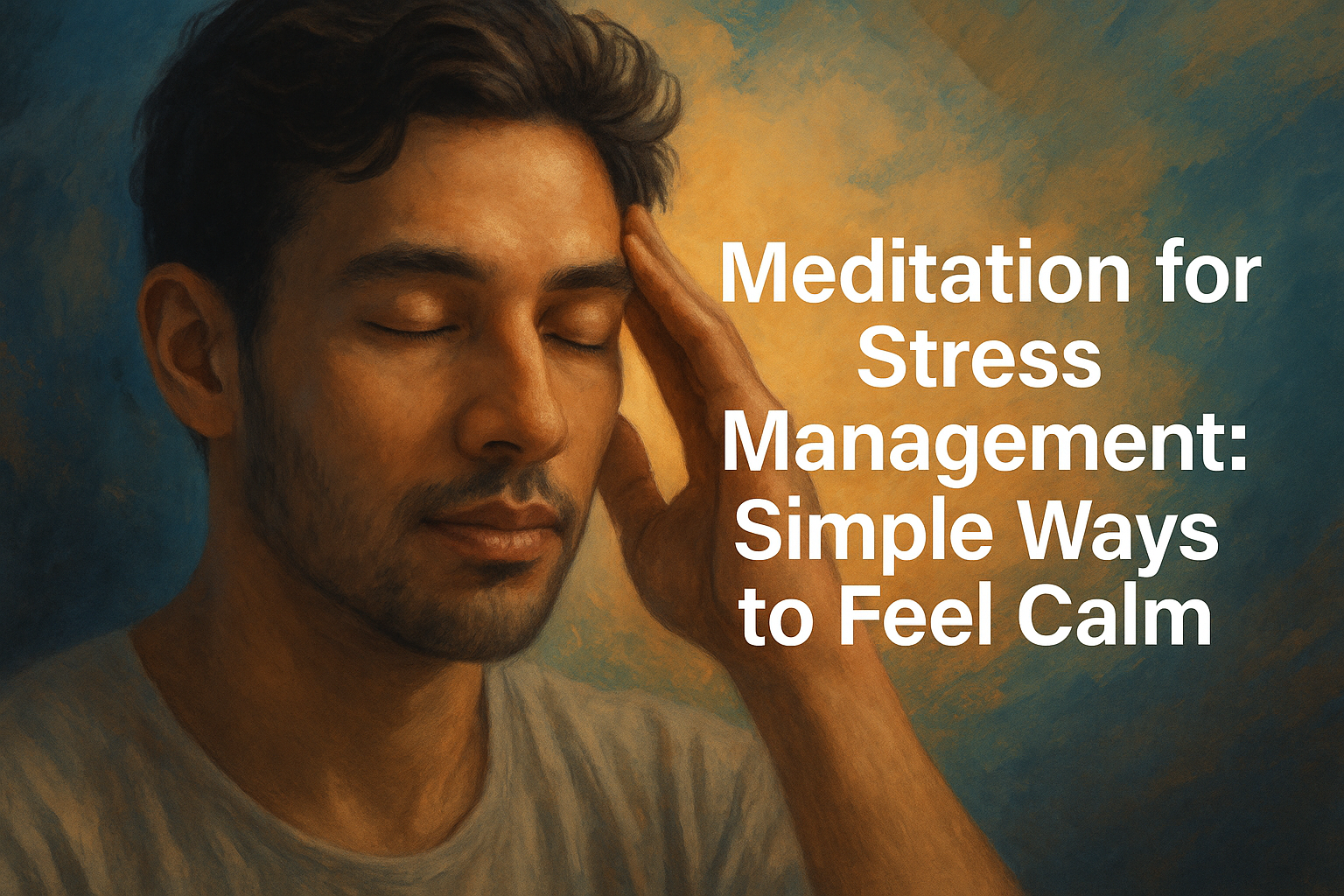
Discover practical meditation tips to reduce daily stress and regain emotional balance in just a few minutes a day.
The science of meditation: how it changes the brain, boosts health, and improves life
Explore how meditation rewires your brain, improves mental health, and enhances overall well-being through science-backed insights from National Geographic.
🟩 How Meditation Helps You Stay Calm in Everyday Life
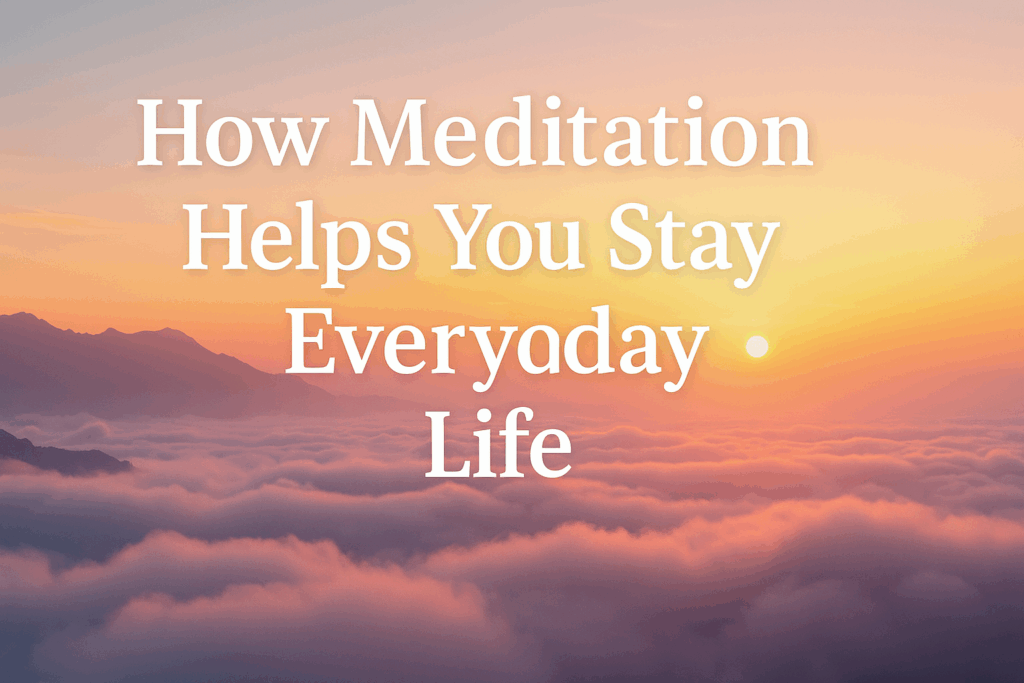
Reduce Stress and Control Emotions Naturally
Meditation has a powerful impact on your ability to manage stress and regulate emotions. When practiced consistently, mindfulness techniques help calm the mind and reduce the body’s physiological stress responses, such as elevated heart rate and cortisol levels. Studies show that people who meditate regularly experience less emotional reactivity and greater control in tense situations. Even just 10 minutes a day can help you pause, breathe, and respond more thoughtfully instead of reacting impulsively. This creates a sense of emotional stability that positively affects your relationships, work, and overall well-being.
Real-Life Stories of Staying Calm Under Pressure
Imagine standing in a high-pressure meeting or dealing with unexpected bad news—yet feeling grounded. Many people who integrate meditation into their daily lives share how it helps them stay composed in such moments. For example, a schoolteacher reported using breathing techniques from her morning meditation to stay calm when managing a noisy classroom. A firefighter shared how mindfulness training helped him regulate his emotions during emergency calls. These stories highlight how meditation isn’t just a spiritual or wellness activity—it’s a practical tool for navigating modern life with clarity and calmness.
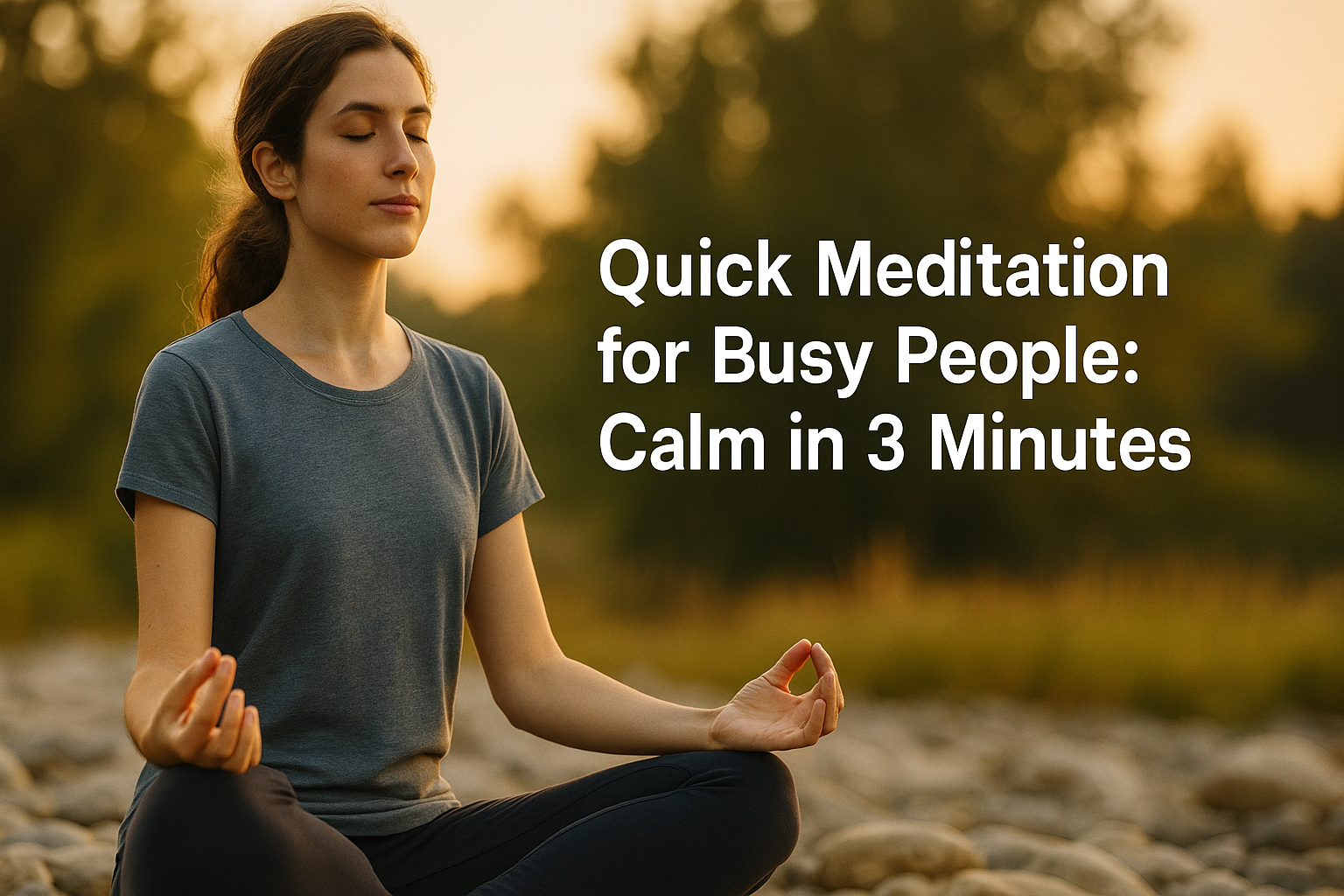
No time? No problem. Learn how just 3 minutes of mindfulness can reset your nervous system and bring clarity.
How Meditation Can Help You Manage Stress
Discover how Harvard researchers explain the calming effects of meditation and its ability to reduce stress in everyday situations.
🟩 Build Unshakable Inner Strength Through Meditation
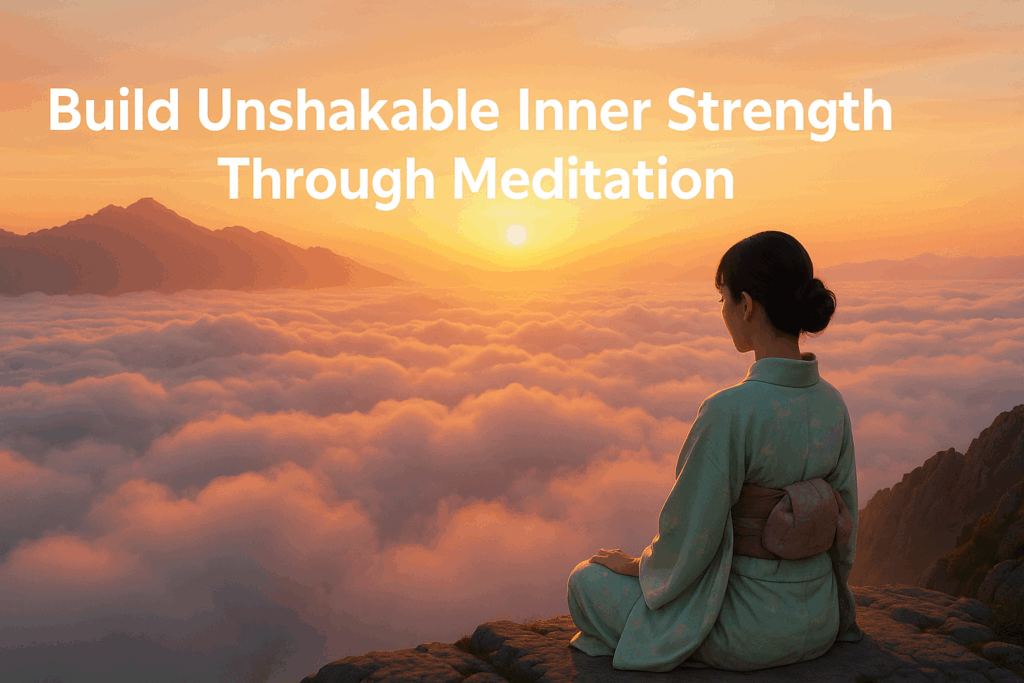
Boost Mental Resilience and Emotional Toughness
Meditation doesn’t just help you relax—it also makes you stronger from within. When life throws unexpected challenges your way, a regular meditation practice can help you bounce back faster. This is called resilience. Research shows that people who meditate develop higher tolerance for discomfort, improved emotional control, and a more balanced perspective during difficult times. By observing thoughts without judgment, you train your mind to stay grounded. This calm awareness helps you respond rather than react—even when things feel out of control. In short, meditation builds the kind of inner strength that keeps you steady through life’s storms.
How Daily Meditation Rewires Your Brain for Strength
Scientific studies using brain imaging have revealed something fascinating: meditation actually changes the structure of your brain. Regular practice increases gray matter density in areas related to emotional regulation, self-awareness, and decision-making—such as the prefrontal cortex and hippocampus. At the same time, it reduces activity in the amygdala, the brain’s fear center, which is responsible for stress and anxiety. These changes lead to a calmer, more focused mind, and enhanced emotional resilience. Just like physical exercise strengthens your muscles, daily meditation strengthens your brain’s capacity for calm and courage.
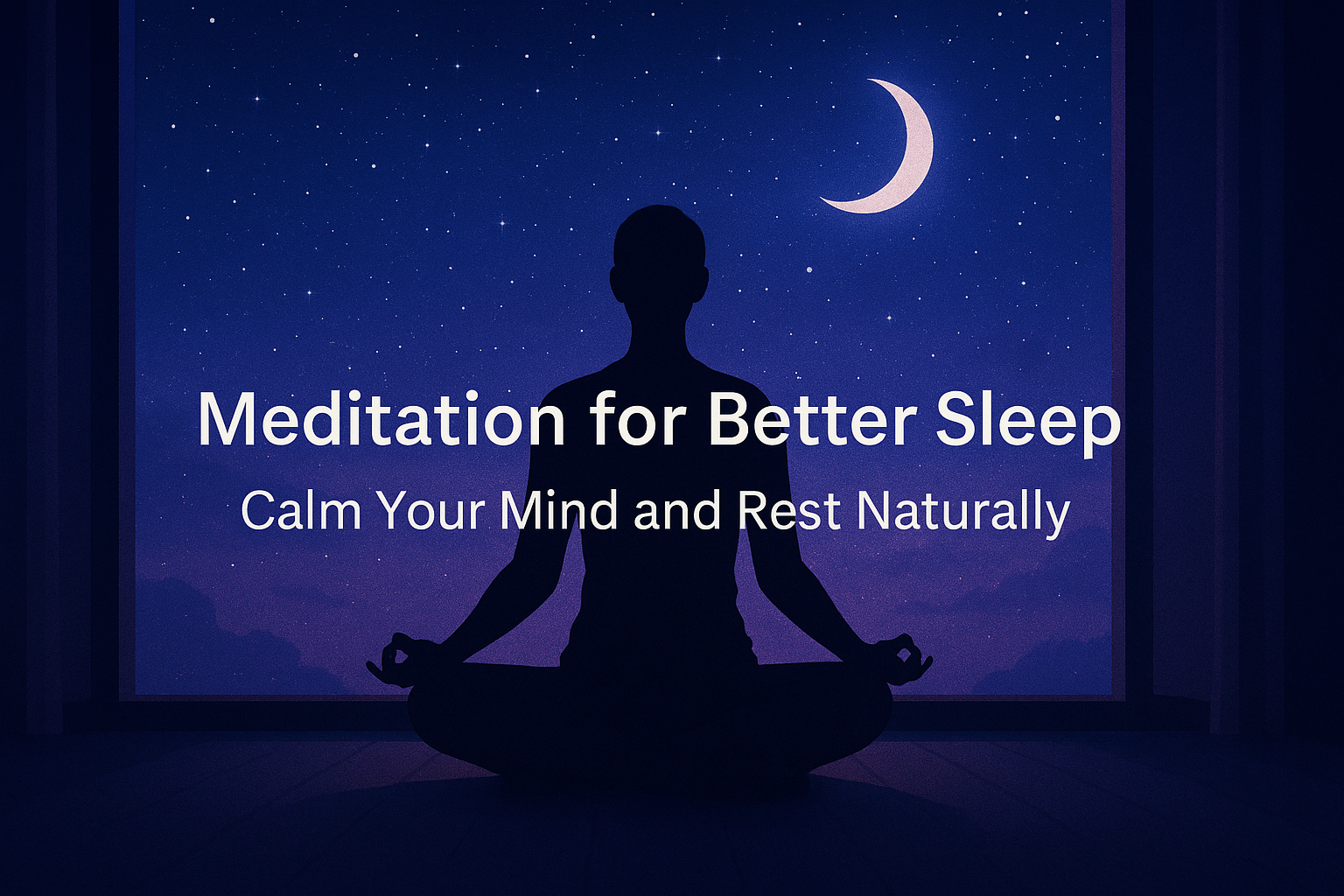
Struggling with sleep? This article introduces calming meditation rituals to help you unwind and fall asleep naturally.
How Meditation Builds Inner Strength and Resilience
Learn how mindfulness strengthens emotional resilience and mental toughness based on positive psychology research.
🟩 Easy Meditation Techniques for Beginners
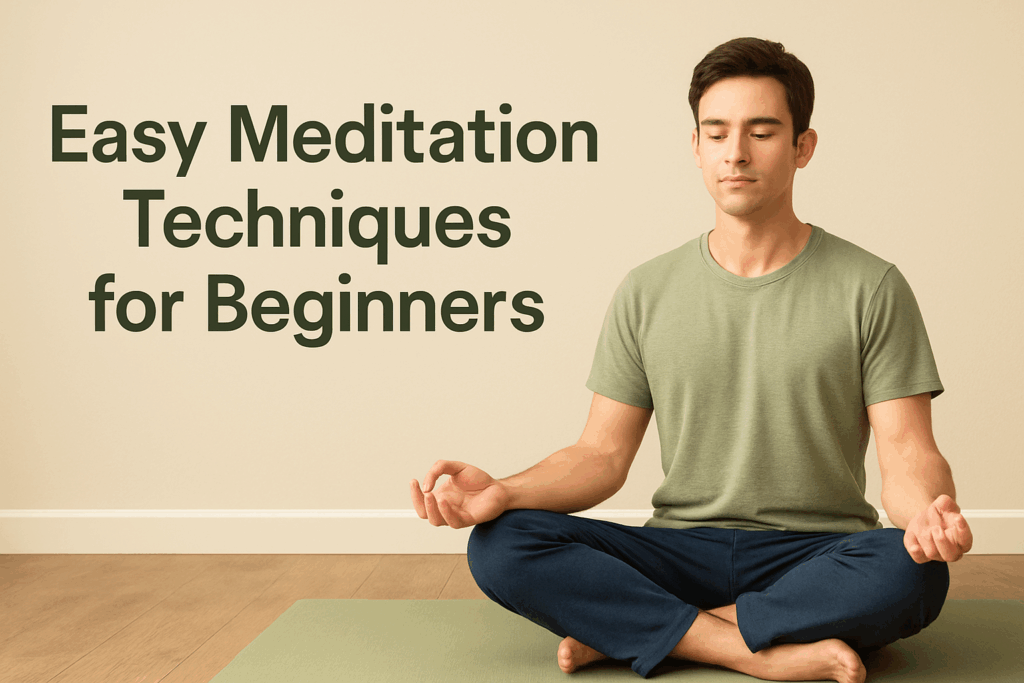
A Simple Step-by-Step Guide to Get Started Today
Starting meditation doesn’t require special skills or equipment—just a few minutes of your time and a quiet space. Here’s a simple beginner-friendly routine:
- Find a comfortable spot. Sit or lie down in a relaxed posture.
- Set a timer. Begin with 3–5 minutes.
- Close your eyes. Gently bring your attention to your breath.
- Inhale and exhale slowly. Notice how the air moves in and out.
- When thoughts arise, gently return to your breath. No judgment—just awareness.
This simple practice helps calm the nervous system and improve focus. Over time, you’ll notice it becomes easier to stay present and quiet your inner chatter. Like brushing your teeth, the key is to do it daily—even if only for a few minutes.
How to Build a Consistent Meditation Habit That Lasts
The hardest part of meditation is often sticking with it. To build a lasting habit, start small and stay consistent. Here are some tips:
- Anchor it to an existing routine. Try meditating right after waking up or before bed.
- Use a reminder or app. Gentle nudges can help establish the routine.
- Don’t aim for perfection. Some days will feel easier than others—that’s okay.
- Track your progress. Seeing your streak grow boosts motivation.
Also, remember your why—whether it's to reduce stress, become more focused, or feel emotionally stronger. By reconnecting with your intention regularly, meditation becomes more than a task—it becomes a gift you give yourself each day.
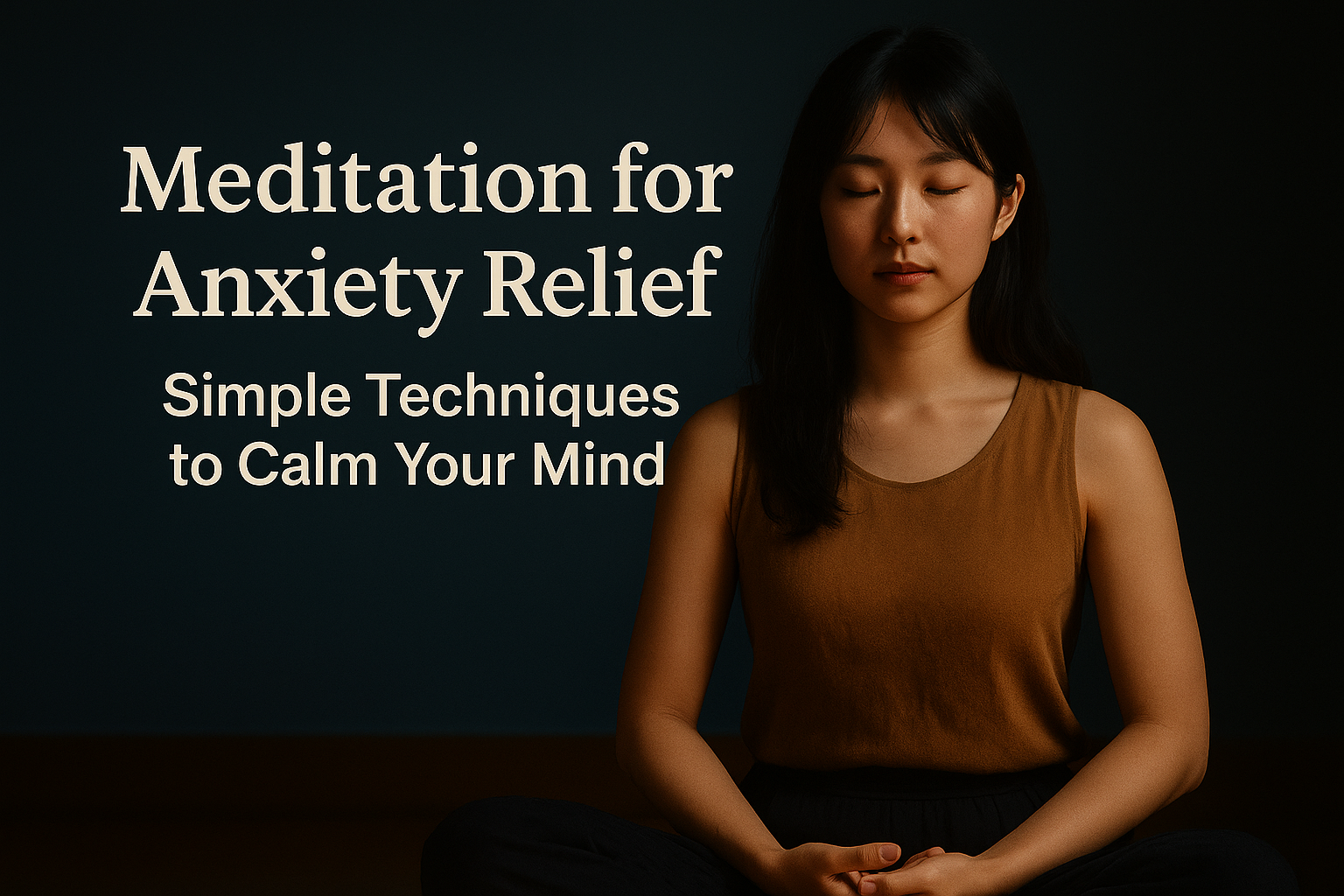
Feeling overwhelmed? Explore simple yet powerful mindfulness practices that help soothe anxiety and restore calm.
How to Meditate: Meditation for Beginners
Start your meditation journey with simple, guided techniques from Headspace designed for absolute beginners.
🟩 Debunking Common Meditation Myths

No, You Don’t Have to Empty Your Mind
One of the biggest misconceptions about meditation is that you must completely clear your mind of all thoughts. This idea often discourages beginners, making them feel like they’re “doing it wrong.”
In reality, meditation is not about stopping thoughts—it's about noticing them. Thoughts will naturally come and go. The practice is learning to observe them without getting carried away. Imagine your thoughts as clouds drifting across the sky—acknowledge them, but let them pass.
Even seasoned meditators experience mental chatter. The power of meditation lies not in emptying your mind, but in cultivating calm awareness amid the noise.
Busting the “I Don’t Have Time” Excuse
Another common myth is: “I’m too busy to meditate.” But meditation doesn't require hours. Just 2–5 minutes a day can make a noticeable difference in your mood and clarity.
You can meditate:
- While commuting (with eyes open and mindful breathing),
- During breaks at work,
- Right before bed,
- Or even while walking (known as walking meditation).
Rather than thinking of meditation as something extra to do, consider it as a moment to reset and recharge. When you make it part of your day, you’ll likely find you have more energy, better focus—and ironically—more time for what matters.
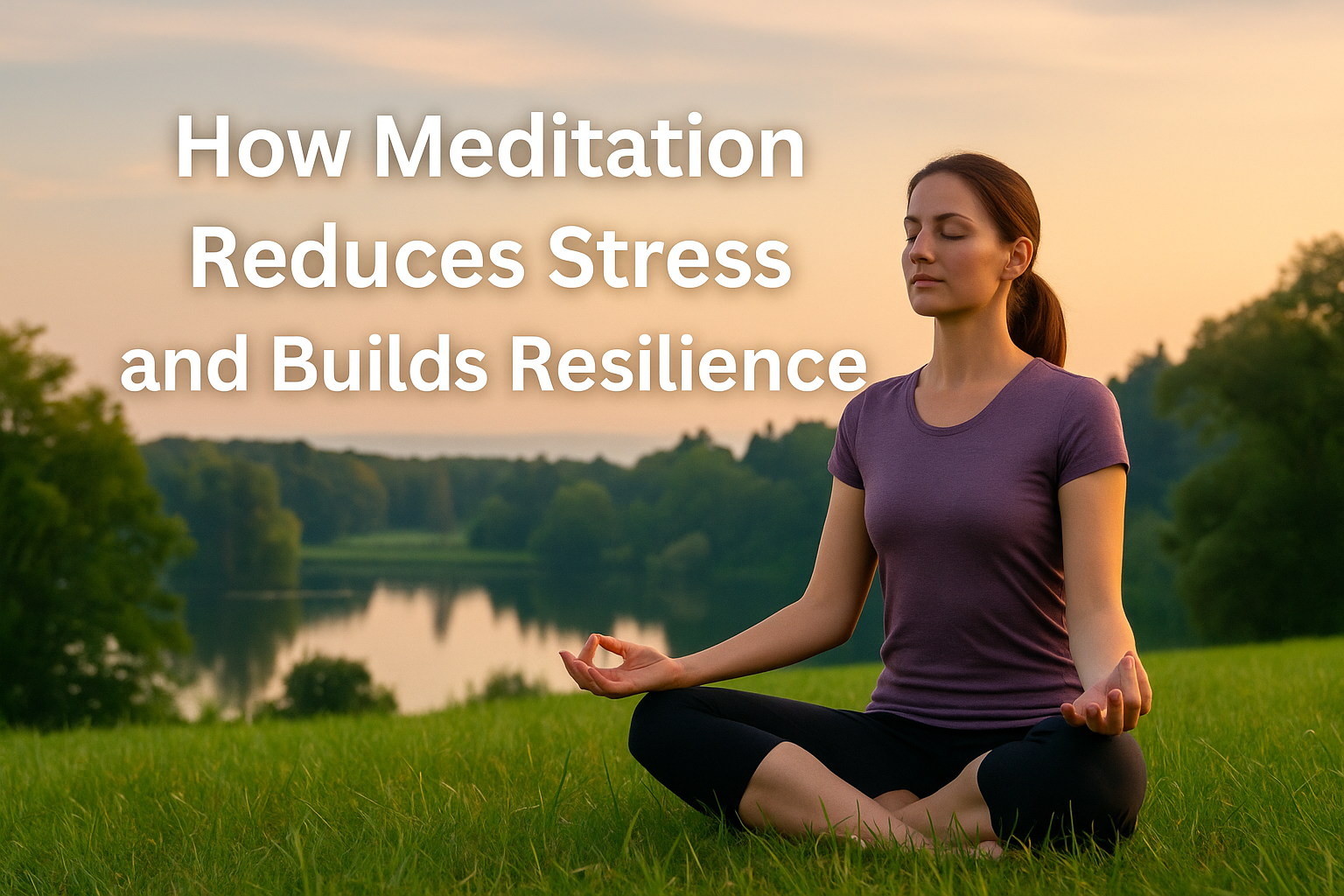
Learn how meditation rewires the brain to handle pressure more calmly and bounce back from life’s challenges with greater inner strength.
7 Common Meditation Myths, Debunked
Think you need to clear your mind to meditate? Think again. This article clears up the most common misconceptions about meditation.
🟩 Your Top Questions About Meditation, Answered

How Long Should I Meditate Each Day?
There’s no perfect length of time for everyone—but consistency matters more than duration。
If you’re a beginner, even 5 minutes a day can bring noticeable benefits. Research suggests that 10–20 minutes daily is a good sweet spot for improving focus, reducing stress, and boosting emotional balance.
The key is to build a habit you can maintain. It’s better to meditate for 5 minutes every day than for 30 minutes once a week. Start small, and let the habit grow naturally as your mind becomes more comfortable with stillness.
Can Meditation Really Help With Anxiety and Depression?
Yes—meditation is increasingly supported by science as an effective tool for managing anxiety and depression. Multiple studies, including systematic reviews, show that regular meditation can:
- Reduce levels of cortisol (the stress hormone),
- Lower symptoms of anxiety and depression,
- Improve mood regulation and emotional awareness.
Mindfulness-Based Cognitive Therapy (MBCT), which includes meditation practices, is now even recommended by health professionals as a treatment for relapse prevention in depression.
While meditation isn’t a substitute for medical care, it can be a powerful complementary practice to support your mental health and build emotional strength over time.
In conclusion, meditation is not just a wellness trend—it’s a time-tested method for building resilience and restoring emotional balance. Whether you're navigating a busy life or simply seeking peace of mind, cultivating a daily practice can transform the way you respond to life’s challenges.
Meditation and stress may seem like opposites, but the more you meditate, the more you'll discover how they’re deeply intertwined—and how mindfulness gives you the strength to rise above both chaos and worry.
Take a deep breath, be kind to yourself, and let your journey to calm and strength begin.
Meditation FAQs: Answers to Common Questions
Find trusted answers from the Mayo Clinic to the most frequently asked questions about meditation, including how and why to practice.